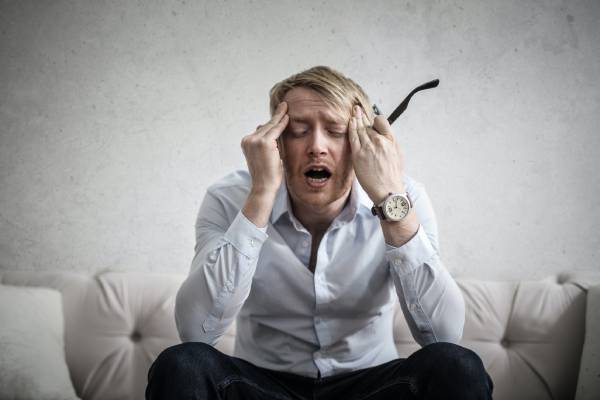
Do I have anxiety?
If you are here, you are probably concerned that you may be suffering with anxiety. This guide will talk you through what it is and how you can spot the signs.
What is anxiety?
Anxiety is an unpleasant experience that you can liken to the feeling of being nervous. In the case of anxiety, the symptoms hang around for a long period of time (from a day to years). Anxious thoughts you may have could be about yourself, others, or even the world around you. Often, you may find it hard to control exactly what is worrying you.
If you are anxious you may feel very negative. You may feel unsafe, like you’re about to die, or that others are talking about you behind your back. These thoughts can be extremely distressing, so it’s important that you reach out for help to get support. You may feel like you are ‘going mad’, but please remember that there are many people around the world who are experiencing similar things to you – you are not alone.
Symptoms of anxiety
Anxiety can present itself in many ways, and varies from person to person. To make it clear, we are going to break it down into thoughts, physical feelings, and actions you may try. You may be suffering from all, or maybe just a handful. If you recognise yourself in these descriptions, it is recommended that you get the support you need.
Feelings you may have
The feelings of anxiety are very similar to that of other natural bodily reactions such as being nervous. If these feelings are going on for a long period of time, or preventing you from doing something, you are likely to be suffering with some level of anxiety.
- Nervous
- On edge
- Panic
- Scared
- Stressed
- Overwhelmed
- Irritable.
Thoughts you may have
Some of the thoughts you may have as a result of anxiety can be extremely distressing. It is important to remember that your brain is very powerful and likes to play tricks on you – don’t believe everything it tells you.
The most common thought is the feeling of not being safe. You may think that you are in trouble for no rational reason, or that someone is out to get you. This may be stopping you from going outside and isolating yourself as a result of the fear.
You may feel the overwhelming fear that something bad is going to happen. As a result of this, you may stop doing things you previously loved as it makes you feel more in control.
You may also have thoughts that you are going to die, or that you want to die. If you are having suicidal thoughts, please seek immediate help.
Physical feelings
A lot of the time, we forget that there are physical symptoms of mental illnesses too. Most of these symptoms often go unexplained, as we can’t link them to any other physical problem we may have.
- Breathlessness
- Upset stomach
- Feeling dizzy / faint
- Heart racing / feeling out of breath
- Sweating
- Feeling tense / achy joints and muscles
- Difficulty concentrating.
As you will notice, a lot of the symptoms above are often linked with physical illnesses. If they do not go away and can’t be explained by a physical problem, you may want to start thinking about anxiety.
Actions
With anxiety, you may find yourself doing things differently than you used to do. If you have been suffering with anxiety for a long time, it may be difficult to distinguish these as they may have become ‘normal’ behaviour. If you are struggling, we suggest you ask someone close to you if they have noticed anything different about you.
You may find yourself actively avoiding situations that make you anxious. Although this is not good to conquer the fear, it does mean you know what is triggering you and will make helping you easier.
You may find it hard to relax in certain situations or be easily irritated around people. You may have decided to remove yourself from these situations altogether and become very socially withdrawn. When you do go out, you may find yourself talking very quickly. You may find that anxiety paralyses you and you are unable to think or move.
As we mentioned earlier, anxiety can be difficult to diagnose and pin down because the symptoms can belong to many different illnesses. If you feel like the above sounds familiar to you, it is important that you reach out for help. Talking about how you feel with others is a great remedy as often they will have had similar thoughts and you will be able to help each other.